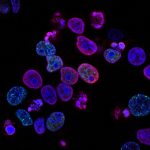An international group of researchers have collaborated to investigate alternative treatment options for those with anaplastic astrocytoma as a part of the ‘CATNON’ trial. The results have been published by the American Association for Cancer Research.
How did the trial work?

The team explored whether giving temozolomide, as well as performing radiotherapy, would improve the post-treatment outcome for anaplastic astrocytoma patients. These tumour types exhibit similar molecular features to glioblastoma, and there is a high need to understand surrounding optimal treatment.
The researchers selected multiple subgroups of these tumour patients due to the presence of particular mutations in their tumour. This mutation helps to promote genes which protect healthy cells in the brain.
What were the results?
The published results revealed that there was no apparent effect of temozolomide on overall survival or progression-free survival. Although this sounds like a negative result for the community, it helps us to understand the best care for this specific subtype of tumour.
The results also stated that this group did not benefit beyond that observed from radiotherapy, regardless of the status of the observed genes. This therefore suggests that a further study exploring the efficacy is required.
To read more scientific information about this study, click here.
If you would like to use your experience and insight to support clinical research, consider signing up to be a PRIME advocate for brainstrust.
If you or someone you love is living with a brain tumour and have any questions around this latest news, or want to access support, give us a call on 01983 292 405 or email hello@brainstrust.org.uk. You can also visit our little brainstrust website which features support for children affected by brain tumour.








